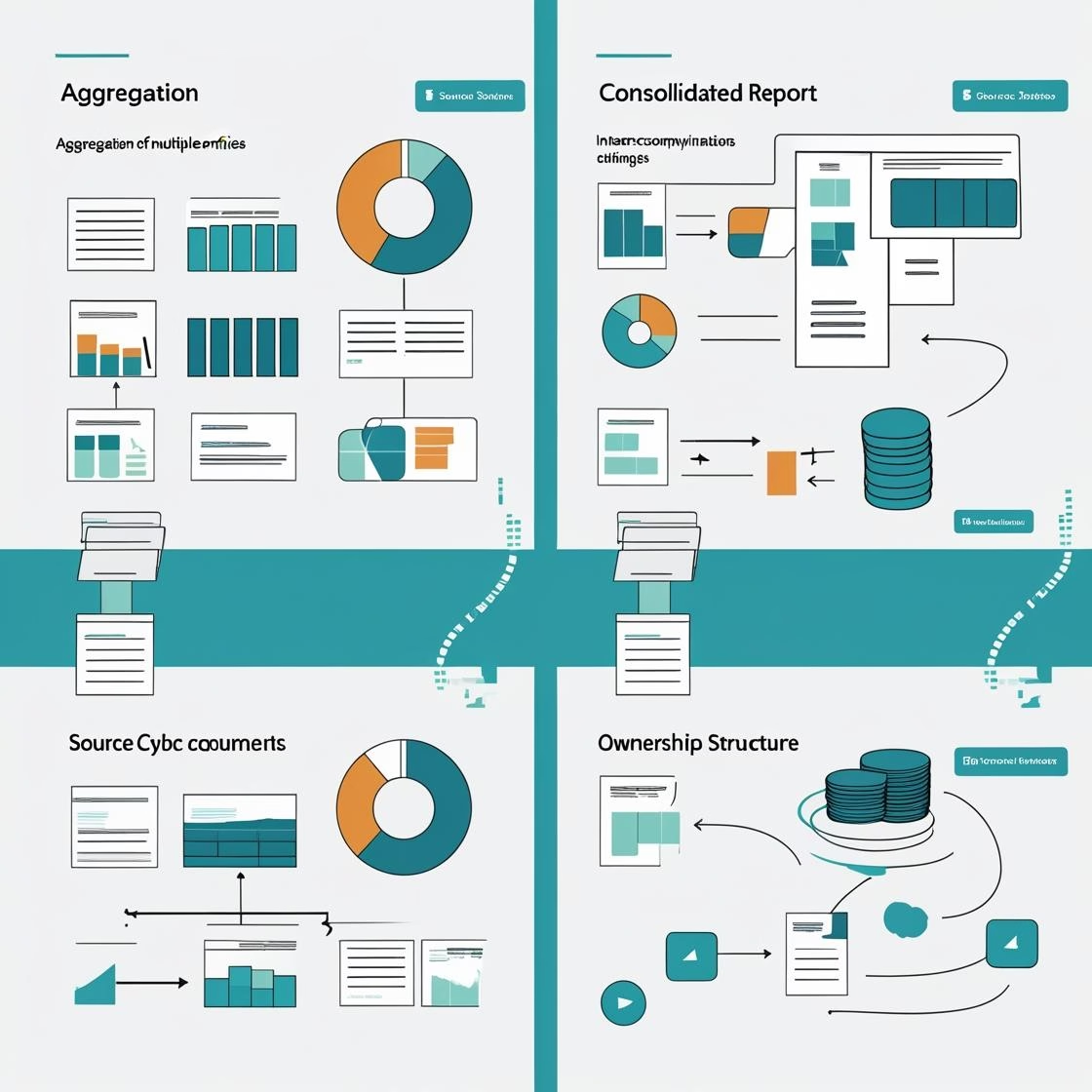When it comes to financial reporting across multiple companies, the terms “consolidation” and “aggregation” are often used interchangeably—but they are not the same thing. Understanding the difference is essential for any finance leader managing a group of entities.
What Is Aggregation?
Aggregation simply means combining data by stacking it together. If you have three subsidiaries with individual P&Ls, aggregation means adding up all their revenues, expenses, and balances.
It’s fast, easy, and useful in certain cases—such as internal performance reviews where eliminations and ownership structures don’t matter.
But it has serious limitations.
What Is Consolidation?
Consolidation, on the other hand, is the full process of preparing group financial statements that reflect the economic reality of the group as if it were a single company. That means:
- Eliminating intercompany transactions
- Adjusting for ownership structures (including minority interest)
- Converting currencies if entities operate in different currencies
- Aligning charts of accounts
- Applying accounting standards consistently
Consolidation provides a true picture of group-wide performance and financial position.
Why the Difference Matters
| Feature | Aggregation | Consolidation |
|---|---|---|
| Intercompany Elimination | ❌ Not done | ✅ Required |
| Currency Conversion | ❌ Often skipped | ✅ Essential |
| Ownership % Adjustment | ❌ No | ✅ Yes (inc. NCI) |
| GAAP/IFRS Consistency | ❌ Not guaranteed | ✅ Required |
| Suitable For | Internal rollups | External financial reporting, audits, boards |
If you’re just trying to see how much your companies sold last quarter, aggregation might be enough.
But if you need to present results to investors, prepare audited statements, or make high-level strategic decisions, only full consolidation gives you the accuracy and context you need.
How BrizoSystem Handles Both
BrizoSystem supports both aggregation and full consolidation—depending on your reporting needs.
You can:
- Use BrizoSystem to sum data across companies quickly for fast internal reporting.
- Or apply full elimination entries, currency conversion, and ownership structures for proper consolidated financials.
This dual approach gives users flexibility while ensuring that when it matters—your numbers are reliable and audit-ready.
Summary
Aggregation is quick but shallow. Consolidation is complex but essential.
With BrizoSystem, you don’t have to choose between speed and accuracy—you get both, whenever you need them.

